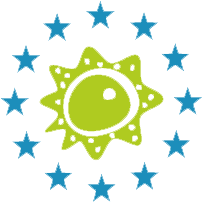Career Compass 2021
The Career Compass is a Q&A session about the different career paths of established public health professionals. This event provides the ideal platform to help junior public health professionals connect with senior professionals and discover future career opportunities. It is organised by EPIET and EUPHEM fellows in collaboration with the EPIET Alumni Network (EAN).
Date: 16 November 2021
Time: 18:00-19.30 CET
Type: open event for all ESCAIDE registered participants.
Panel of presenters
Mike Ryan
Dr Mike Ryan has been at the forefront of managing acute risks to global health for nearly 25 years. Before being appointed Executive Director, he served as Assistant Director-General for Emergency Preparedness and Response in WHO's Health Emergencies Programme from 2017 to 2019.
Dr Ryan first joined WHO in 1996, with the newly established unit to respond to emerging and epidemic disease threats. He has worked in conflict affected countries and led many responses to high impact epidemics. He is a founding member of the Global Outbreak Alert and Response Network (GOARN), which has aided the response to hundreds of disease outbreaks around the world. He served as Coordinator of Epidemic Response (2000-2003), Operational Coordinator of WHO’s response to the SARS outbreak (2003), and as WHO’s Director of Global Alert and Response (2005-2011),
He was a Senior Advisor on Polio Eradication for the Global Polio Eradication Initiative from 2013 to 2017, deploying to countries in the Middle East.
He completed medical training at the National University of Ireland, Galway, a Master’s in Public Health at University College Dublin, and specialist training in communicable disease control at the Health Protection Agency in London and the European Programme for Intervention Epidemiology Training.
Marion Koopmans
Marion Koopmans is Professor of Virology at Erasmus MC, Rotterdam. Her research focuses on the transfer of viruses from animals to people (zoonoses) and on the large-scale spread between people (outbreaks and pandemics). She uses genetic information in the form of viral DNA or RNA to map these infection pathways.
She is the initiator of the worldwide NoroNet network for research into noroviruses: notorious causal agents of gastric flu. Thanks to this initiative, far more is now known about the genetic variability within these viruses. Koopmans's research group made the important discovery that noroviruses can undergo rapid genetic change to stay one step ahead of the immune system of their hosts. Koopmans investigates, among other aspects, whether and how noroviruses in animals contribute to this rapid evolution. She has further built upon the knowledge developed to rapidly describe possible sources and transmission routes of other virus outbreaks, such as during the avian flu epidemic in the Netherlands in 2003 and during the discovery of MERS in 2012.
Chikwe Ihekweazu
Dr. Chikwe Ihekweazu is an Assistant Director General at the World Health Organization (WHO), leading the WHO Hub for Pandemic and Epidemic Intelligence. Prior to this, Dr Ihekweazu was the first Director-General of the Nigeria Centre for Disease Control (NCDC) and led the agency between July 2016 and October 2021. He acted as Interim Director of the West Africa Regional Centre for Surveillance and Disease Control from January to December 2017.
Dr Ihekweazu trained as an infectious disease epidemiologist and has over 25 years experience working in senior public health and leadership positions in several National Public Health Institutes, including NCDC, South African National Institute for Communicable Diseases (NICD), the UK's Health Protection Agency, and Germany’s Robert Koch Institute (RKI).
Dr Ihekweazu has led several short-term engagements for WHO, mainly in response to major infectious disease outbreaks around the world. He was part of the first WHO COVID-19 international mission to China, in February 2020. Dr Ihekweazu is a graduate of the College of Medicine, University of Nigeria and has a Masters in Public Health (MPH) from the Heinrich-Heine University, Dusseldorf, Germany. In 2003, he was awarded a Fellowship for the European Programme for Intervention Epidemiology Training (EPIET) and subsequently completed his Public Health specialisation in the UK. He is widely published in medical peer-review journals.

